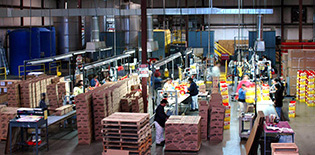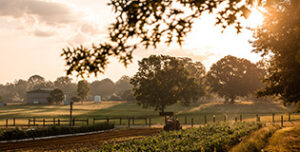The first two weeks of spring have come and gone and we are hopeful that we have seen the last frost until late fall. We did end up getting all of our vegetable starts in the ground, but I will just go ahead and tell you, they aren’t looking too perky.
With all of the rain we have had so far this year, the soil has yet to dry out enough to accomplish any “beneficial” tillage. Having said that, sometimes you have to do what you have to do, and this year that meant cultivating and planting in wet soil. I knew this wasn’t even close to ideal, but it was our only option at the time.
While we should have a decent crop of potatoes, the yields from the first round of spring vegetables that we planted will be poor. We ended up purchasing transplants to do a second planting in a different location, and although this doesn’t fit into our planned rotation, the results are going to be much better and will allow us to salvage our spring transplants.
The following is an excerpt from an article published by the Penn State extension and gives good insight into the consequences of cultivating wet soils.
“An ideal soil volume for crop production contains about 25% water and 25% air by volume. The air and water fill the pore spaces between and among actual soil particles and aggregates. The remaining 50% of the volume consists of mineral soil particles and organic matter. Soil compaction reduces the pore spaces in that soil volume. Tillage and wheel traffic that reduces pore space results in a dense soil with poor internal drainage and reduced aeration. Plant roots don’t grow well in dense soil. Inadequate moisture and nutrients reach the plant, and yield is reduced. Generally, the higher the clay content of a soil, the more compaction reduces the yield.”
On a brighter note, our strawberries look great this year and are loaded with green strawberries that will begin ripening up very soon. The blueberry plants we planted a couple months ago look very healthy and I am confident that we will have a really good crop of berries next year.


The recommended practice with newly planted blueberries is to prune off all of the blooms the first year to promote root and shoot growth. Asparagus shoots have also started popping up and we should be able to begin harvesting those very soon.
Our first broiler chickens of the year are big enough to put out on pasture and we will move them into the mobile pens next week. I hope all of you are having a great spring season so far and I will talk to you next month!


